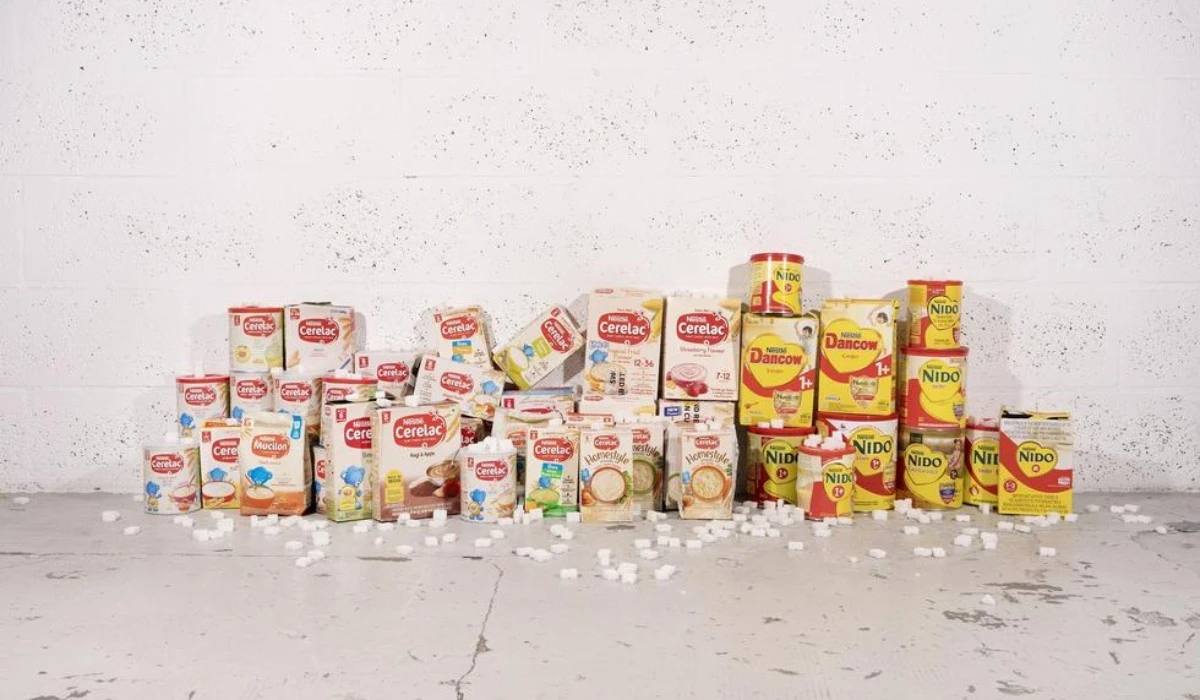Nestlé, the global food and beverage giant, is under fire for allegedly selling baby food with added sugar in developing countries like South Africa.
However, they are offering sugar-free options under the same brand in Western markets.
Nestlé Selling Food With More Sugar to Babies In South Africa And Poorer Countries
A joint probe by Public Eye and the International Baby Food Action Network (IBFAN) revealed this discrepancy, scrutinising 150 Nestlé baby food products sold in these regions.
The report, released just before Nestlé’s annual general meeting, found that popular brands like Nido and Cerelac had significantly higher sugar content in lower-income areas compared to wealthier countries. For instance, while the same products had zero grams of added sugar per serving in Switzerland, where Nestlé is based, they contained an average of four grams per serving of Cerelac and two grams per serving of Nido in other regions.
In South Africa, the largest market for these products on the continent, all Cerelac variants contained added sugar, averaging about 4.2 grams per serving. Similarly, Nido products for children aged one to three in South Africa had 0.9 grams of sugar per serving.
Federal guidelines in the US recommend that children under two years old should avoid processed sugar. They linked it to childhood obesity and future health issues like heart disease. In 2022, the World Health Organization called for a ban on added sugar in products for babies and young children under three.
Karen Hofman, a public health professor at the University of Witwatersrand and a qualified paediatrician, criticised the sugar content discrepancy, calling it a form of “colonisation.” She questioned why products sold in South Africa should differ from those in high-income settings and emphasised that there’s no valid reason to add sugar to baby food.
ALSO READ: Tragedy Strikes Again: Two More Young Children Die After Eating Snacks From Foreign-Owned Spaza Shop

“Recipes Vary”, The Multinational Pushes Back
Nestlé spokesperson for East and Southern Africa, Mota Mota, responded to the allegations to News24:
“Slight recipe variations may exist across countries due to factors like regulations, consumer preferences, and ingredient availability.”
Mota stated that the company is working to reduce sugar content across its product range, including removing added sugars from growing-up milk for children above 12 months. He assured that Nestlé products meet local and international regulatory standards and are carefully formulated for children.
